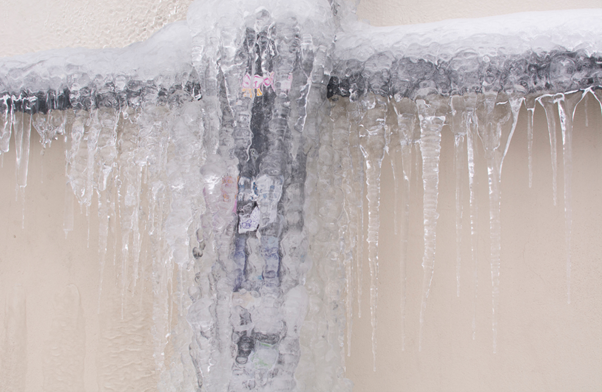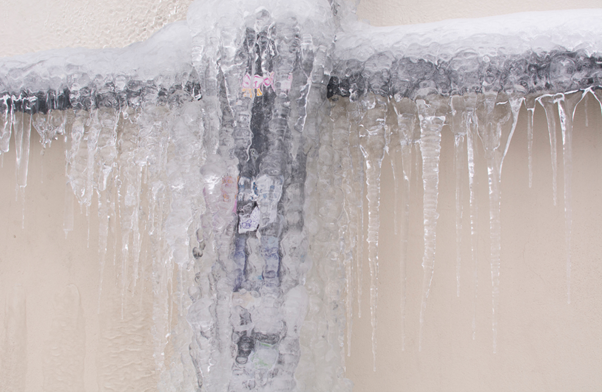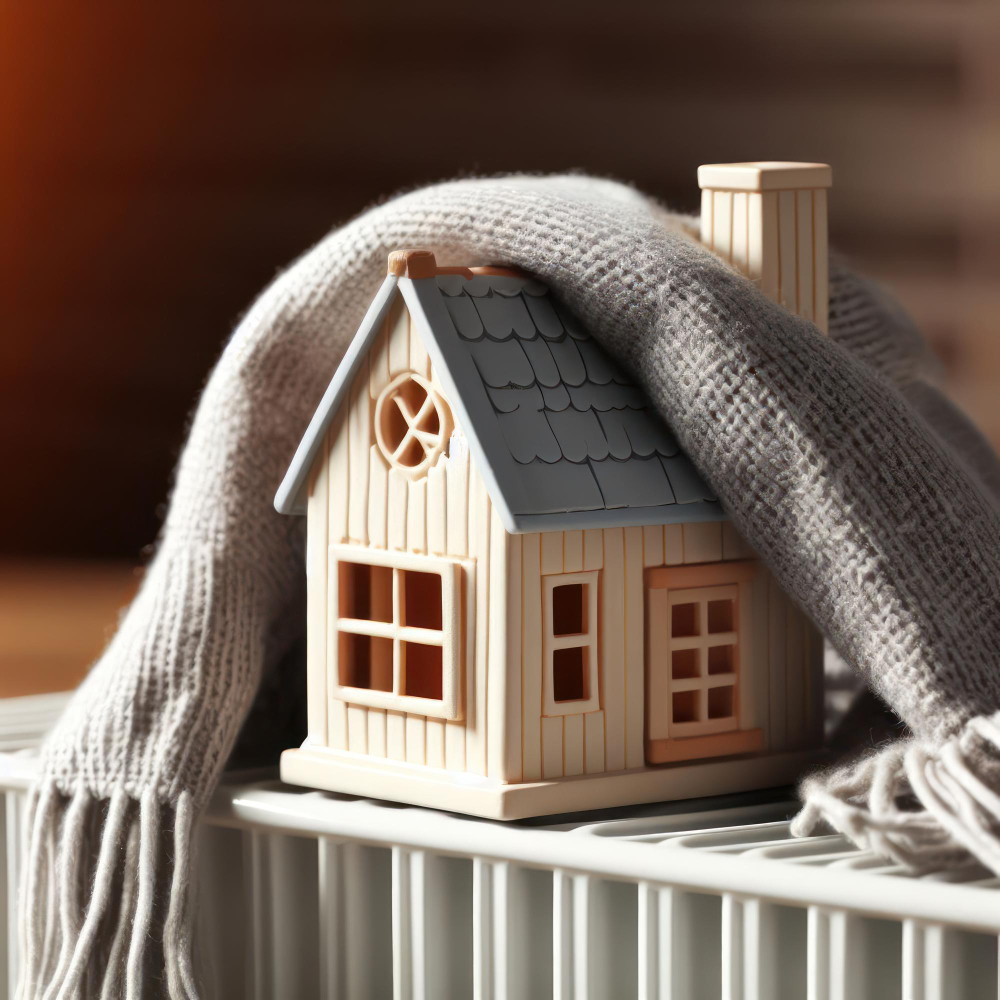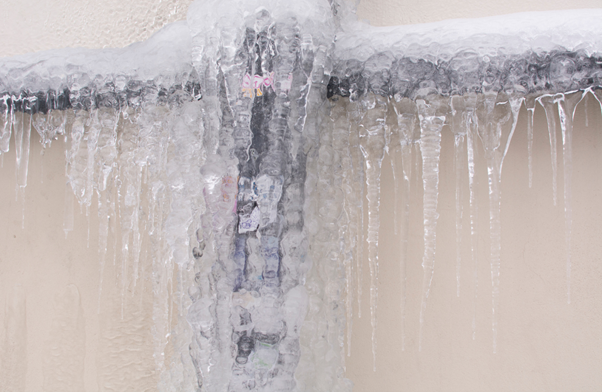Quick and simple tips to help try and prevent damage due to the cold weather
During the winter months, you may experience issues with frozen pipes and condense pipes on your boiler, water logged lawns and condensation resulting in loss of hot water, heating, and potential damage to your property.
Here are some simple and easy checks to try and prevent these problems.
Unheated water in your pipework has the potential to freeze when the temperature drops. This could lead to a burst pipe and water damage to your property.
Try to keep water moving around your home by frequently running taps for a short period ensuring you include every tap. If possible, please keep your heating at a constant temperature and check the pipes around your house frequently.
If your property has an outside tap remember to isolate it. The water to the pipework for an outside tap is cold and is a common location for bursts.
We strongly recommend that during colder weather you isolate your outside tap.
Your isolation valves are located on the pipework under your kitchen sink. Once you have isolated the tap, remove any excess water in the pipework by turning the tap on and running the water until no more comes out.
Please note if any bursts occur due to frozen pipes this will not be classed as a building defect and any required repairs will not be covered.

If the condense pipe for your boiler is located externally this can freeze in colder weather which will prevent your boiler from working correctly. If this occurs, you will get an error message on your boiler, and it will stop working. To help prevent this you should consider covering the boiler condense pipe with an insulating material, for example, foam pipe insulation.
If the condense pipe freezes, then you can help to thaw this by pouring warm water or applying warm towels onto the pipe. Do not use any form of naked flame to thaw the water and do not use boiling water as this can cause the pipe to crack.
If your boiler condense pipe does freeze this will not be classed as a building defect*.
*Only applicable if boiler condense pipe is external

Newly laid gardens in winter are likely to hold water for longer periods. This is because the ground is wetter when the topsoil and turf are laid.
Winter weather conditions of more rain, ice, and snow can lead to water-logging in your garden. Any standing water will take longer to drain away during the winter months.
To help prevent your lawn from becoming damaged, please avoid walking across it when it is waterlogged.

As the temperature drops outside you will likely see an increase in the amount of condensation forming on your windows.
To prevent this water from dripping onto your window boards and staining them please use your fitted ventilation fans and leave trickle vents open on windows to allow the moisture to escape.
Dry up any condensation that has formed on your windows and patio doors with a cloth or a suitable window vac.

Keep your home safe in a storm
When strong winds are forecast, we naturally look to batten down the hatches and stay safely indoors as much as possible. Whilst your home is your shelter from storms, a good battering from high winds can damage your property in many ways – some expected, some not.
A home has weak spots in these types of extreme weather conditions. Here's some advice about what to expect and how to cope:
- Windows
Unsecured windows can be damaged easily, with single panes cracking and breaking or coming away from the hinges. With windows out of the frame as it were, the wind is free to blow through your house causing more chaos. You should shut, lock, and cover your windows as best as you can.
- Doors
Similar to windows, open doors can be damaged by clattering into walls – and so can the walls. Glass in doors can also crack and break. Even if there isn’t a window, doors that aren’t shut properly can be pushed open by the wind, leaving it free to damage your belongings and the interior of your house. Remember to keep your doors closed and locked during strong winds.
- Garage
Extreme winds can pull a garage door off its tracks, or even bend or break it with the intense pressure. Double doors are most vulnerable due to their larger surface area.
- Fence panels and gates
Ensure gates are secure and locked like your doors. Your garden gate can clatter against your property and can damage your brickwork or break the gate itself. Fence panels can buckle under pressure, where possible please secure them.

Take a look at our How To videos
Our YouTube channel has various videos on caring for your property.

Frozen pipes

Winter health and well-being







